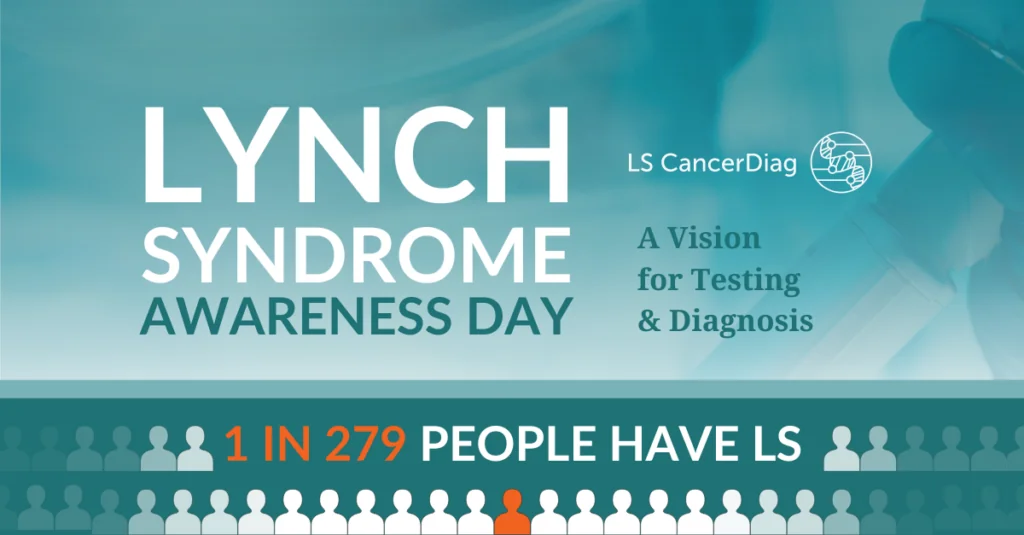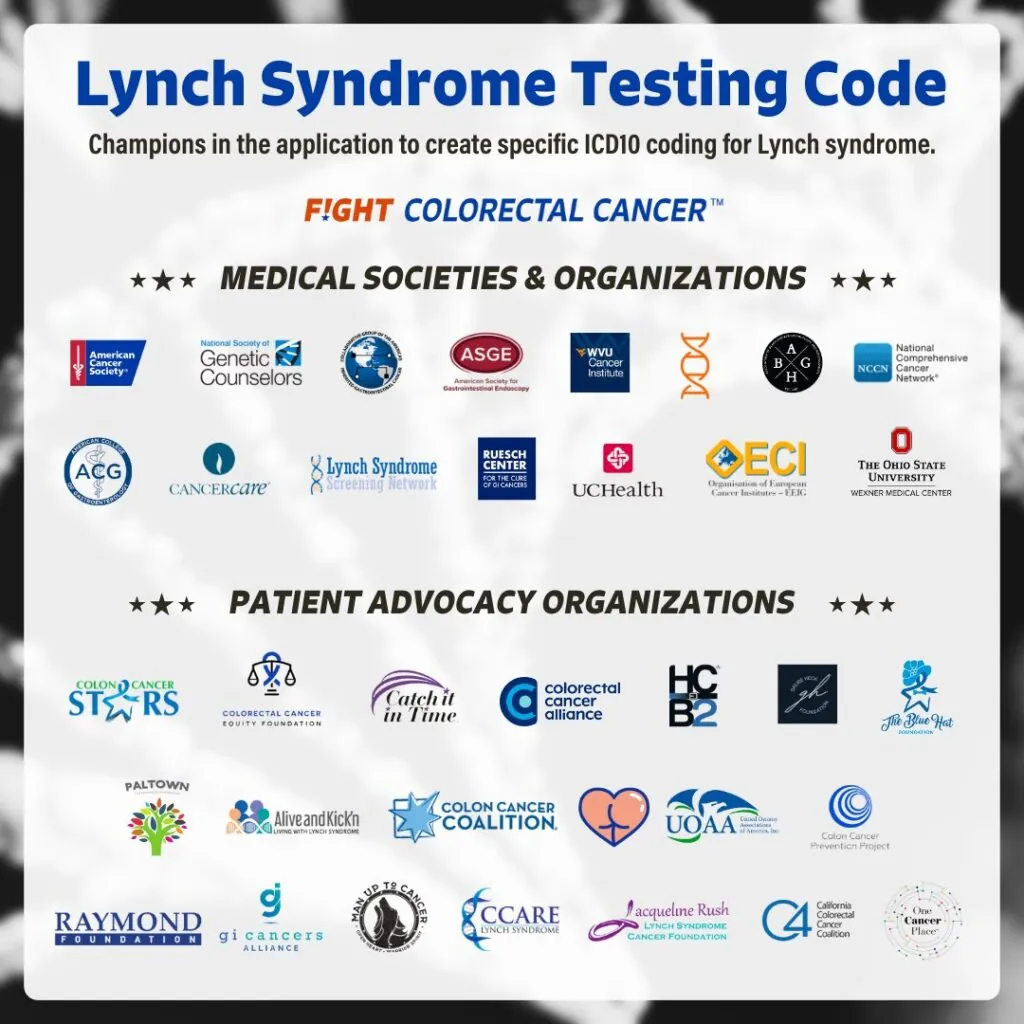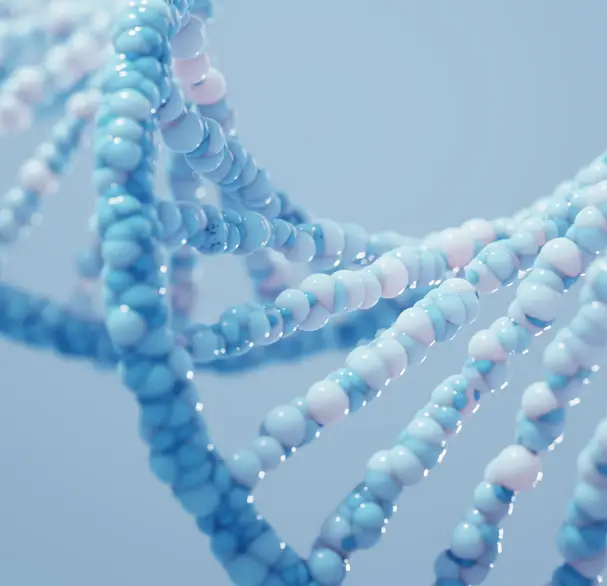March 22nd is Lynch Syndrome Awareness Day: an important day that serves to educate the public about Lynch syndrome, promote early detection, and help to create better outcomes for individuals and their families.
As a company dedicated to Lynch syndrome testing, our work around Lynch syndrome continues year-round. Every year on Lynch Syndrome Awareness Day, we join the global conversation and reflect on the progress the industry has faced with improving awareness.
This year, we want to continue to bring awareness to a common challenge in Lynch syndrome: diagnosis.
Lynch Syndrome Awareness: The Importance of Diagnosis
Lynch syndrome, also known as inherited mismatch repair (MMR) deficiency, is a hereditary cancer syndrome that impacts 1 in 279 people globally. Affected individuals have over 80 percent risk of developing specific types of cancer, and the defect is inherited with 50 percent probability in affected families.
Still, most carriers are either not aware of their condition or diagnosed after they have already developed cancer. Estimations are that less than 5% of individuals are aware of their condition. Lynch syndrome is commonly associated with cancers such as colon cancer, uterine cancer, ovarian cancer, and others. These cancers often occur at a young age and can be recurrent within a family.
March is also National Colorectal Cancer Awareness Month in the United States. Read how Lynch syndrome and colorectal cancer are related in this article.
These staggering numbers underpin the importance of getting diagnosed as soon as possible, allowing high-risk populations to begin preventative measures and catch cancer developments as soon as possible.

Lynch Syndrome Diagnosis: Today
Lynch syndrome testing typically begins with a tumor sample from a patient that has developed cancer. With tumor testing, the DNA of a tumor sample is analyzed for abnormalities associated with Lynch syndrome, such as microsatellite instability (MSI). Positive tumor test results indicate the need for further genetic testing to confirm Lynch syndrome.
Genetic testing has come a long way over the years in its ability to quickly analyze a person’s DNA. Through DNA sequencing, healthcare professionals can identify mutations in genes associated with Lynch syndrome, including MLH1, MSH2, MSH6, and PMS2. Accurate Lynch syndrome diagnosis requires knowledge of the inherited mutation gene. However, there is an unknown universe of mutations that could be associated with Lynch syndrome, which can make it difficult for healthcare professionals to interpret DNA sequencing results. Because of this challenge, there is a gap in the number of Lynch syndrome cases that can be diagnosed.
Lynch Syndrome Diagnosis: Tomorrow
The entire industry is working to bring awareness to Lynch syndrome and, with that, uncover new ways of testing that can help more people find their path forward. Our mission is to not only confirm Lynch syndrome in patients but also provide reliable testing for the entire family.
When DNA sequencing provides uncertain results, a new type of testing can step in and provide a complete answer for families. This testing method is called DiagMMR, a functional test that detects inherited MMR deficiency, requiring no prior knowledge of underlying variants to diagnose.
The vision is that traditional and new testing methods will work together to create faster pathways from sample to diagnosis for the millions of people at risk today. Learn more about DiagMMR and the research behind it here.
The relentless collaborative work continues
Just a few days ago, a large coalition lead by the Fight CRC Advisory Council announced an initiative to submit an application to the International Classification of Diseases (ICD-10) Coordination and Maintenance Committee to create a code specifically for Lynch syndrome.

Just a few days ago, a large coalition lead by the Fight CRC Advisory Council announced an initiative to submit an application to the International Classification of Diseases (ICD-10) Coordination and Maintenance Committee to create a code specifically for Lynch syndrome. This is a great effort and very much needed to provide better care to Lynch syndrome families!
On this day, we would therefore use the occasion to acknowledge all the societies and organizations that are working hard to raise awareness about Lynch Syndrome across the world.
To highlight a few, we would like to thank these organizations for their daily work and collaboration both in the US:
and outside the US:


